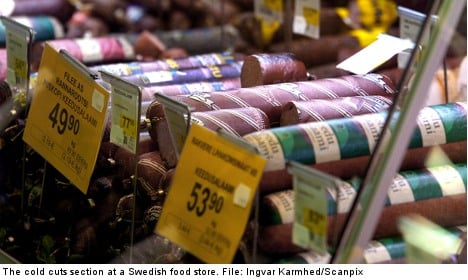Swedish National Food Agency (Livsmedelsverket) said on Wednesday that the pork meat came from Slovenia.
“We are now going to inform the EU about our analyses and follow up with the company that sold this wrongly labelled salami in Sweden,” agency spokeswoman Louise Nyholm said in a statement.
“It is unacceptable that products that are labelled halal contain pork meat. There are a lot of people who absolutely do not want to eat pork meat, so it’s important that companies take responsibility and verify that their products are not sold on false grounds,” she added.
Observant Muslims avoid pork as its consumption is prohibited by Islam.
The agency did not disclose how much falsely marked meat had been sold or for how long it had been on the market.
The Islamic halal method of killing an animal requires its throat to be slit and the blood to be drained. The method is forbidden in Sweden because the animals are not anaesthetized before slaughter.
The food agency said the salami contained around 10 percent pork meat, far above the 1-percent level usually considered as contamination.
The agency said it had tested 99 food products for pork DNA, nine of which tested positive. Eight of the samples contained less than one percent pork, and of those, seven had less than 0.1 percent.
European countries have stepped up food controls in response to the recent food scandal which saw millions of frozen ready meals pulled off supermarket shelves after tests showed meat labelled as beef contained large quantities of horsemeat.
AFP/The Local/at



 Please whitelist us to continue reading.
Please whitelist us to continue reading.
Member comments